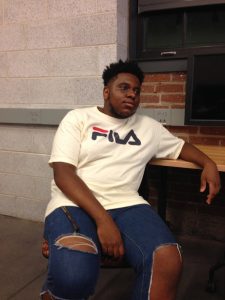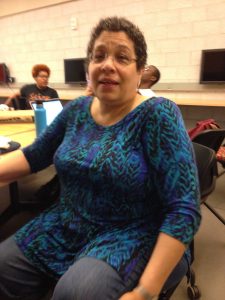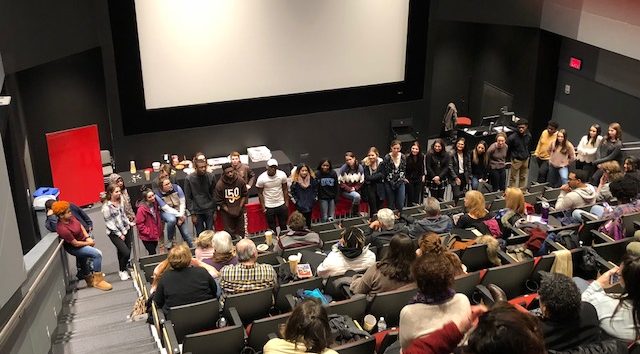From the filmmaking exercise, my group and I chose to do the option about the differences between Lafayette, Lehigh, and Muhlenberg. When we embarked on producing a short video based on our option, my group and I had some struggles. First, we were having issues, such as our camera and lavalier battery dying (twice). Once my group was able to move past the camera issues, we were able to swiftly shoot our video. We were able to shoot our footage without problems because we had taken the time to brainstorm and layout a script. This was something that we did particularly well as a group. After shooting the video, we proceeded to edit–there weren’t that many of us that knew how to use the editing softwares. During the editing process, we debriefed, provided our two cents, and chose the shots that best represented our vision for the video. One takeaway from the filmmaking exercise I learned from when my groups final video was erased on the desktop computer because the computer had shut down. In the future, I am to make sure to (consistently) save my work in a personal flash or hard drive.
Monthly Archives: September 2017
Reflection of Class on Sept. 4
Class was actually really fun on Monday! I enjoyed meeting people from different schools and getting to know their work ethic and skills. Communication was key in making these films and I feel our group was able to get a lot of ideas on the table and we were able to successfully decide on what we wanted to do. There was room for a lot of creativity in this project so it was fun to see how a group of people who do not know each other could come up with something funny and entertaining.
It was difficult to fulfill everyone’s ideas with the amount of time we were given, but as a team, we agreed on what would be kept and what would be tossed. It was also difficult to try and just get the film done without being a perfectionist about it, especially since I was working with other people. It was a nice challenge to try and create a film with new people in two hours. I think that is something all of us as a class should be proud of. Another difficulty was that not everyone knew how to use Premiere, so trying to communicate editing ideas was tricky, but we figured it all out.
Overall, I really enjoyed the assignment and was excited to already start creating something. I cannot wait to work with the rest of the Lehigh and Lafayette students whom I still do not know.
5 Images: An Artistic Process

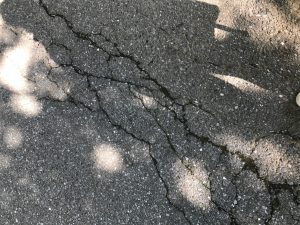
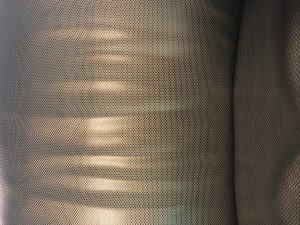
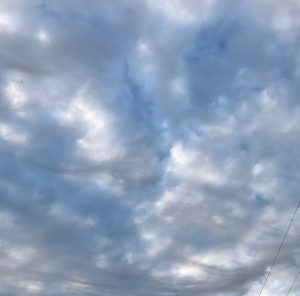
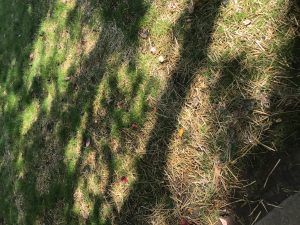
Artistic Process (Photo Stills)
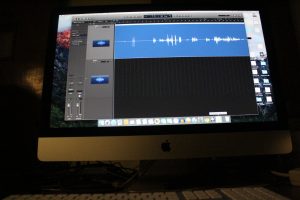

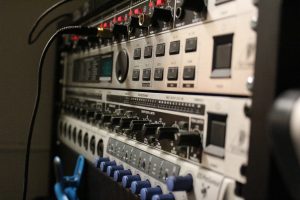
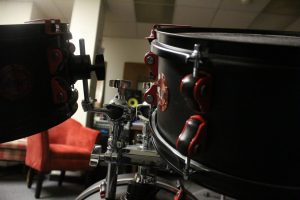
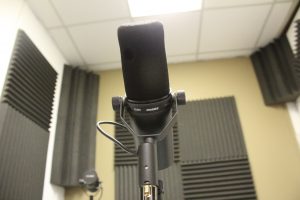
Lehigh Valley Story- Lead in the Lehigh Valley?
Working title- Lead in the Lehigh Valley?
Longline- Lead poisoning in children is a serious issue in PA.
Lead poisoning has had a lot of attention in the media in the past two years. Places like Flint Michigan have been in the headlines for severe water quality issues involving lead. Lead can have significant health impacts especially in children. Even at low levels lead poisoning can interfere with growth, harm hearing, make learning difficult and delay development.
The threat of lead poisoning does not only exist in Michigan or in drinking water. The leading cause of lead poisoning is lead dust from lead-based paint. Lead paint was commonly used in housed until 1978.
In Pennsylvania, this type of lead poisoning has become an issue. Over 13,000 children were found to have lead levels high enough to cause the Centers for Disease Control and Prevention concern. Allentown, in particular has some of the highest rates of lead poisoning in PA. I think this could be an interesting story to uncover further and bring attention to through documentary!
If you want to learn more about this issue here just one recent article that addresses the issues in PA and Allentown! http://www.mcall.com/business/mc-lehigh-valley-lead-exposure-flint-20160204-story.html
Reflection on Monday’s Activity!
I was really excited to jump into Monday’s activity! I had never used such high tech equipment before, and I could not wait to get my hands on it. At first, I didn’t think it would be difficult to get enough footage and cut it in the three or so hours we had for class. But, I would soon see how things can easily go wrong on a film set, and that 60 seconds is longer then it may seem.
Unfortunately, my group faced a lot of obstacles. The first being that we picked a difficult place to film. We thought filming outside would make us unique and make our interview more comfortable aesthetically pleasing. This combined with all of our technical issues would prove to be a somewhat bad idea.
It took us awhile to mount our camera on the tripod. Once it was all set, we realized our first battery was dead. We ran to get a new one, but unfortunately this one actually had a low batter too and half way through filming died. So we ended up filming the rest with a different camera. The batter in our microphone was also dying. And by the time we realized all this and positioned the tripod with the new camera perfectly it was to dark to film.
We decided to quickly abandon our mission to film outside and ran back to the room we began in. With a new camera and full batteries we began filming. We only had 20 or so minutes to shoot our interviews. The lighting wasn’t great since all natural light was gone. Things definitely didn’t go super smoothly, but everyone in my group kept a positive attitude. There are things we would all have liked to change about our film and the way it was shot. But for me, not being super experienced with this type of equipment I learned a lot from my team members and from all the technical issues we had. Everything that went wrong is something that I am now better prepared to face in the future. In regards to filming I learned to check batteries first, and film second. In regards to editing film, I learned to make sure your B-roll connects in some way to what the film is talking about, otherwise it might seem a little silly.
Reflection of class 9/4
In terms of how the class went, I enjoyed the exercise and being able to collaborate across campuses. I think it’s important to have activities like that because we’re all trying to become more comfortable, but we’re also all on different levels in terms of our experience within production. I liked how some people were good at one thing and others good at the next. I think it helps allow people to be more comfort in speaking up and also, building one another skills because we’re all learning from each other. I am also more of a hands-on person so being able to go out and shoot as much as possible always helps me in continuing to build my craft up. It was great to be able to help people when they didn’t know how to edit or didn’t know how to work the camera. I also was able to get help in some editing techniques so I thought the exercise was great. It also opened the floor for more conversation in such a big production course, more people will begin to talk to each other.
Lehigh Valley Story Pitch- Center City Thrift
Working Title: Center City Thrift
Logline: A small Allentown thrift store offers a unique, but necessary service for the city.
As mentioned in one of my previous posts, I’m interested in creating a documentary on the Center City Thrift Shop in Allentown. Center City Thrift Shop is seen by many to just be a thrift store, when in fact the store’s initiatives supports the only community wireless (wifi) network in the Lehigh Valley. This brings to question why this initiative (free wifi for the community) is even needed. I think exploring this place in the Lehigh Valley will help tell a story about not only the thrift store itself, but also the people behind the program and more importantly, the surrounding community that benefits from it. Broadly, the short documentary would nuance the differences in experiences between those with a higher socio-economic status and those with a lower SES in the Lehigh Valley, and how while these people’s experiences can be vastly different, they could be living minutes away from each other in different town sections.
Lehigh Valley Documentary
I have two options for my Lehigh Valley Documentary. One would be as I mentioned in a previous post, regarding the mindfulness and meditation research and work I will be doing with the Gracedale senior citizens. Many of them have cognitive impairments, so it would be interesting to use documentary as a way of tracking the positive benefits of yoga and meditation. However, I understand that because several residents have cognitive deficits, it may be difficult to gain consent or filming privileges therefore I am also looking into doing a documentary based on the gentrification of Easton and how this affects the community as a whole.
I know that there are a lot of negative feelings towards Lafayette’s expansion (http://www.lehighvalleylive.com/easton/index.ssf/2017/09/easton_planners_reject_lafayet.html#incart_river_index) and I want to be able to examine the opinion of both Lafayette growth and other “gentricated” ideas that Easton has in the works. I first noticed the gentrification of Easton after the Easton Indoor Public Market was opened up. Easton is a food desert, so at first I thought having an indoor market would make healthy and fresh food easily accessible to residents, however this is not the case at all because everything is so EXPENSIVE. More and more pricey bars and restaurants have emerged since the 2014 when I first started college and I would love to interview local residents to see how they feel about this change.
Title: Easton- To Infinity and Beyond
Longline: A documentary examining the various opinions regarding the growth of new restaurants, venues, and attractions in Easton as well as the expansion of Lafayette College into the surrounding community.
Taking Picture Reaction
Trying to quickly take a photo of a person that entirely captures their personality is no easy feat. Add the extra challenge of never having met the person and this task begins to seem nearly impossible. Although I feel that I often overlook it, individuality should truly be regarded with awe. The complexities that compromise an individual appear to be infinite. People are so variable and how they are viewed in eyes of the others they have encountered is also extremely variable. It is for these reasons that I become slightly agitated when my mother reminds me of her desire for me to “stay true to myself”. I feel as though she wants my decisions in college and life to be based on some previous version of self; a version of me she favored. However, I often question if I would be committing an injustice against myself for making a decision that I heavily agree with today that I younger or previous me would not agree with. Ultimately, I feel that this idea relates to one of the bigger, more abstract, and angsty questions, “who I am I?”. This is a question that I have not been able to answer for myself. I feel that individuals are always changing on all bases and thus it’s hard to represent all that a person is through any medium.
In terms of documentaries, perhaps this can be applied to how we analyze the information we receive from other people. Donald Glover once said in an interview that he does not want others to think of the thoughts and emotions he expresses in his music as static. Rather, he talks about what he experiences for brief moments of time. For instance, if he writes about being depressed and angry because of racism, this does not mean his entire life is centered on him being pissed off all the time because of racism. He just feels this way at times. While this seems rather obvious, this is something that I often overlook in documentaries. For example, if someone told me how much they love their community in a documentary that supports the idea that their community is great, I might see this person’s prospective as static. However, application of the previously mentioned ideas might lead me to understand that this person might not always be in favor of her community and question what provoked her to answer the way she did when she was interviewed for the film.
